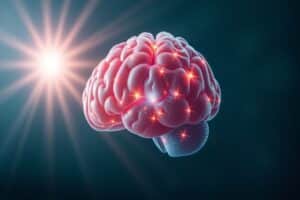The Importance of Music for People with Alzheimer’s
Hearing just a few bars of a familiar song can be powerful enough to take our minds to other places by bringing about feelings of nostalgia, calling up memories of the past, and evoking multi-faceted and meaningful sets of emotions.
Interacting with music, particularly music that is attached to memories in one way or another, can be an enjoyable hobby for seniors. In addition, music can also function as a practical tool for memory stimulation in seniors dealing with Alzheimer’s and the symptoms that come along with the disease.
The Power of Music
Research conducted over the last few decades has been able to provide insight into the nature of Alzheimer’s, and some studies have concluded that music has the ability to yield positive outcomes for brain activity and memory in seniors. Research findings indicate there are numerous ways music can have a positive impact on the minds of seniors suffering from Alzheimer’s and other forms of dementia.
Positive Emotions
Music can alter people’s moods in ways that may reduce feelings of stress and anxiety while increasing joy and jubilation. Hearing a song that has an upbeat tempo or one that is associated with a positive memory can bring happiness into a senior’s day while calming songs can have an equally powerful soothing effect.
Music Appreciation
The ability to appreciate and enjoy the sounds, rhythms, beats, and lyrics that make up a musical composition is among the last things to remain as Alzheimer’s continues to cause deterioration in the brain. It is for this reason that music can remain present as a meaningful tool for communication or connection for seniors with Alzheimer’s when a great number of their other capabilities have been reduced as a result of the disease.

Evoking Emotion and Memory
Music can bring about emotions that come with deeply powerful memories. Integrating music into activities throughout the duration of the day can help facilitate the creation of new memories and associations. While new songs can help forge new connections and memories, the old classics can provide seniors with the opportunity to reminisce. In this way, music can help both to call forth pleasant memories from the past and improve cognitive ability and daily rhythm over time.
Mental Engagement
Music has the ability to stimulate multiple areas of the brain in ways that are important to helping seniors with Alzheimer’s engage with the people and places that surround them. Singing along to songs activates the left side of the brain, while listening engages the right side, creating circumstances in which numerous aspects of the mind become engaged and utilized at once.
Bringing People Closer
Notions of connectivity can be more difficult to achieve when Alzheimer’s is involved. However, when seniors still have some degree of mobility, music can lead to dancing or other forms of creative movement that can help seniors physically connect with those around them through the sensation of touch.
Why Music?
Since listening to and interacting with music does not require an overly high level of cognitive function, means that it is an available and accessible activity for seniors with Alzheimer’s. It can allow them the opportunity to work out their minds, connect with others, and enhance their own feelings of happiness and well-being. Minimal cognitive or mental processing skills are required because responses to beats and rhythm are automatic and instinctive reactions connected to the motor centre of the brain.
Health Benefits of Music
Music can be implemented in a variety of ways to increase cognition and deliver pleasure. Some practical daily applications for music might be:
- Start the day on a positive note – music can set the tone for the day with an uplifting track in the morning
- Combine music with physical exercise
- Breaking up repetitive or problematic behaviour
- Encouraging sing-alongs
- Winding things down in the evening – calming music can help alleviate sundowner’s symptoms
Turn on the Music
Music can behave as a truly meaningful resource for retaining and recalling older memories, creating new connections, and improving the mood of seniors dealing with the various difficulties that come along with Alzheimer’s. Incorporating music in seniors’ daily lives in the context of their home environments or at other activities in Kitchener-Waterloo-Cambridge can be an accessible and effective way to add some vibrancy and interest into even the most mundane aspects of life.



